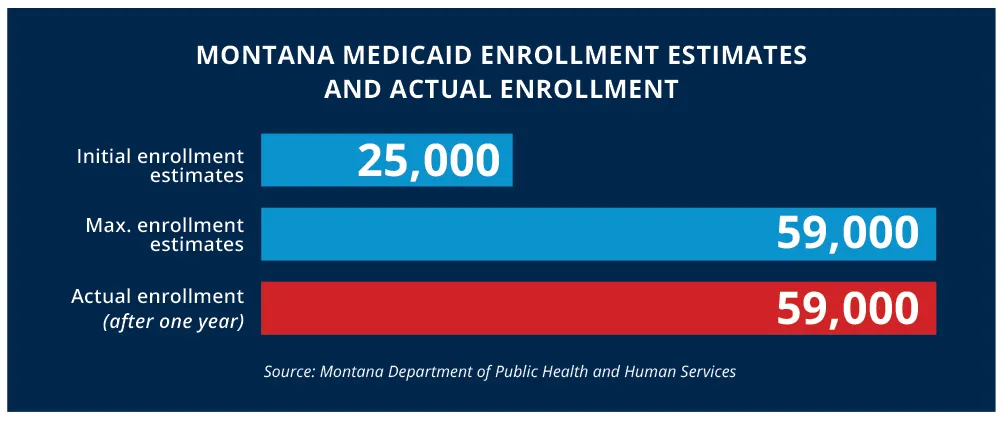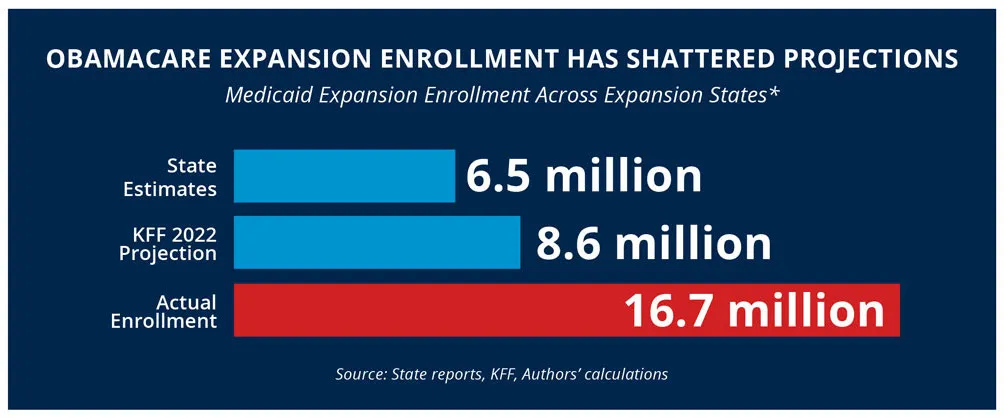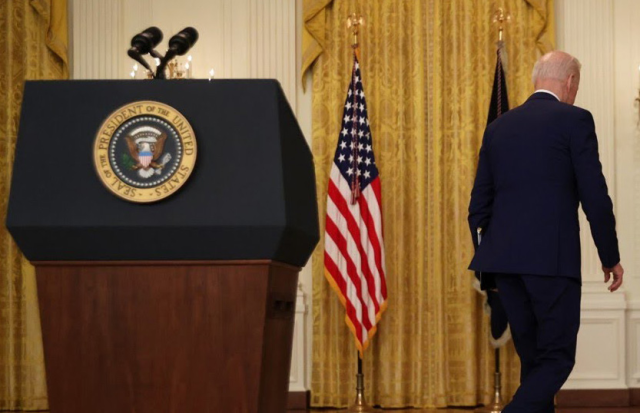The saga of the Kansas Medicaid Expansion debate looks a lot like stories we’ve seen lately on the national scene; there are embellishments, there are tall tales, there are outlandish assertions… and then somebody’s uncle gets eaten by cannibals.
President Joe Biden’s Illiad-like recitations of family lore –the most recent award winner being the story of Uncle ‘Bosie’ who Biden claims became a main course for natives after his aircraft was shot down over New Guinea in World War II – are so entertaining one almost hates to debunk them with facts. But when a dandy like Kansas Medicaid Expansion is being pushed with such singularly focused zeal by a state’s chief executive, it’s a fiduciary responsibility to boil the fat off the bones and tell the public what’s really underneath.

In all of Kansas politics there can’t be a single current issue that’s had more study and analysis than the Medicaid Expansion question. For nearly 10 years, ever since federal funding for the program was defined by a U.S. Supreme Court ruling that made Medicaid Expansion for states optional as opposed to the mandate that was intended under Obamacare, advocates in Kansas who can always find a reason for bigger government have carried the Medicaid Expansion banner. The plan is simple and it harkens back to another dubious Biden Administration faux pas: in the same way that the president’s border policies have let more unqualified individuals into the country, Kansas Medicaid expansion would let more people receive “free” or nearly free health care paid for by taxpayers. Right now Medicaid in Kansas is designed for and granted to the poor; expansion would allow more people on the plan who have higher incomes.
It turns out that logic is a thin broth for most Kansans once they understand the details. We’re all for providing help to people who need it most, and that’s what the state’s present Medicaid system does. But expanding that offer to provide healthcare freebies for the 30-year-old childless adult who doesn’t want to get a job and still lives at home with his parents pretty much leaves a bad taste in our mouths.

Governor Kelly has tried to season the deal using any number of state crisis story lines. The tall tale that Medicaid expansion would save Kansas’ rural hospitals disregards the fact that the larger populations that would be included under the expansion plan mostly live in the cities, so urban hospitals would collect most of the additional bounty. The governor touts “work requirements” for the program that contain all kinds of exemptions and limitations and basically amount to no work requirement at all.
The real hair in the soup however is the fact that other states have expanded their Medicaid programs saw far more additional enrollment than their initial figures anticipated, and far higher costs than anticipated. And those costs aren’t a single year occurrence – once you start giving something to people for free, it never gets taken back. Kansas taxpayers would be on the hook for 10% of the additional costs and we’d pay the federal government’s 90% through our federal taxes – or just tack it on to the $34 trillion dollar national debt so our kids and grandkids could pay it too.

The reality is that Governor Kelly has no more basis to believe Medicaid expansion will improve the health of Kansans than she did that a statewide mask mandate during Covid combined with the disastrous shutdown of businesses, schools and churches would be best for our collective health. Kelly just follows the government-knows-all pack, and whatever they tell her is good enough.
Unlike the shelf life of the president’s unfortunate uncle, Medicaid expansion is a dish that’s been left in the Kansas refrigerator far too long. Legislators, when they come back to finish the state’s business for the year, should throw it out once and for all.
Dane Hicks is a graduate of the University of Missouri School of Journalism and the United States Marine Corps Officer Candidate School at Quantico, VA. He is the author of novels "The Skinning Tree" and "A Whisper For Help." As publisher of the Anderson County Review in Garnett, KS., he is a recipient of the Kansas Press Association's Boyd Community Service Award as well as more than 60 awards for excellence in news, editorial and photography.





